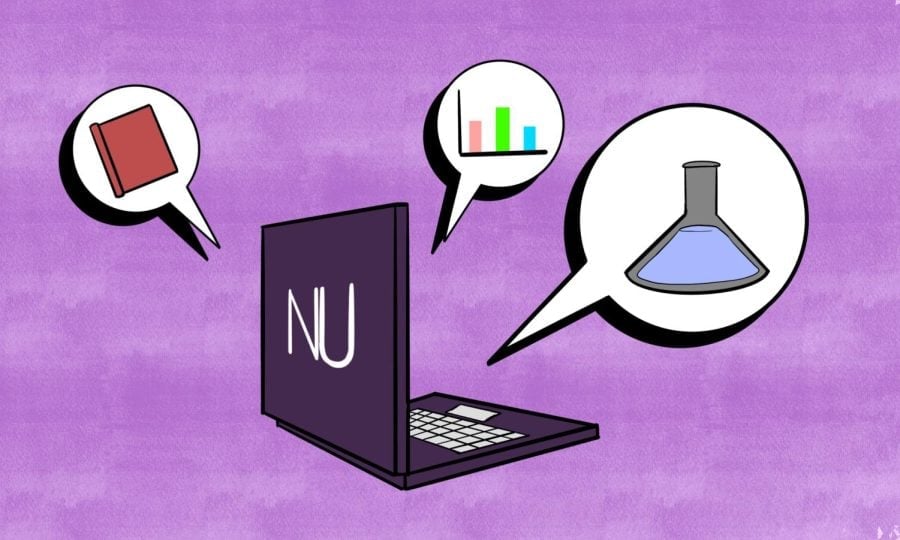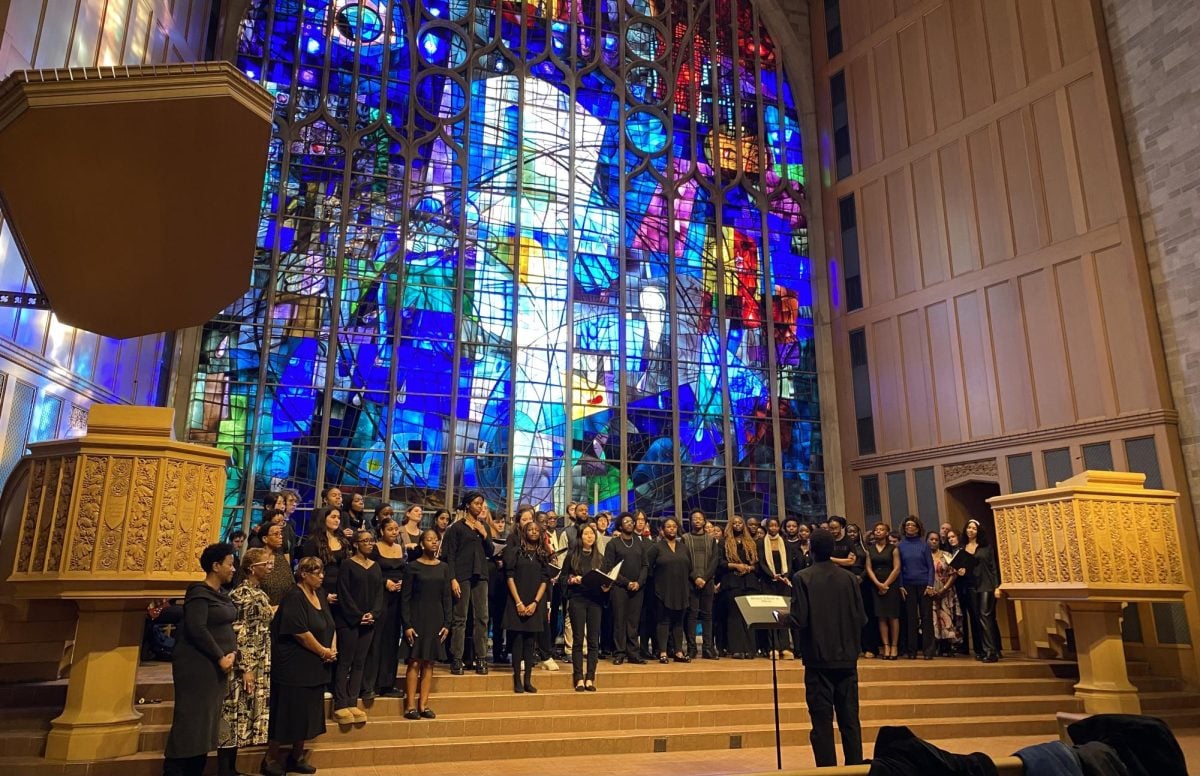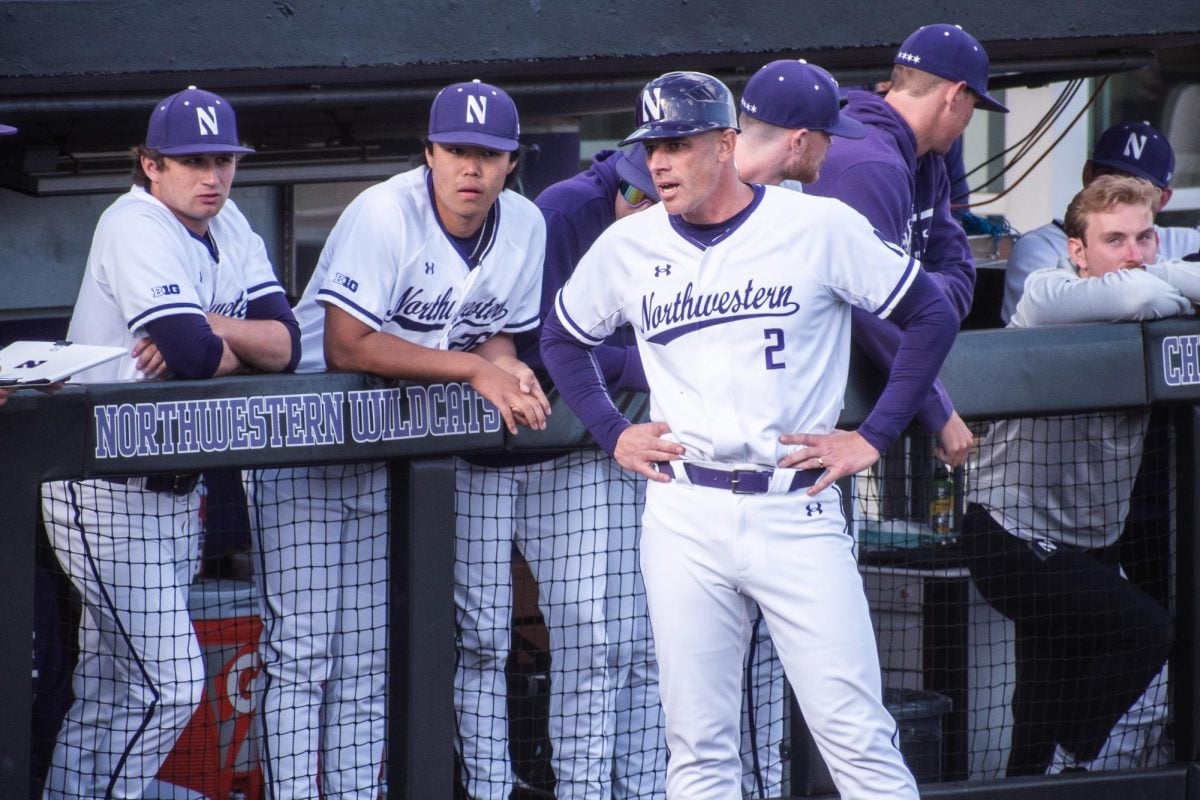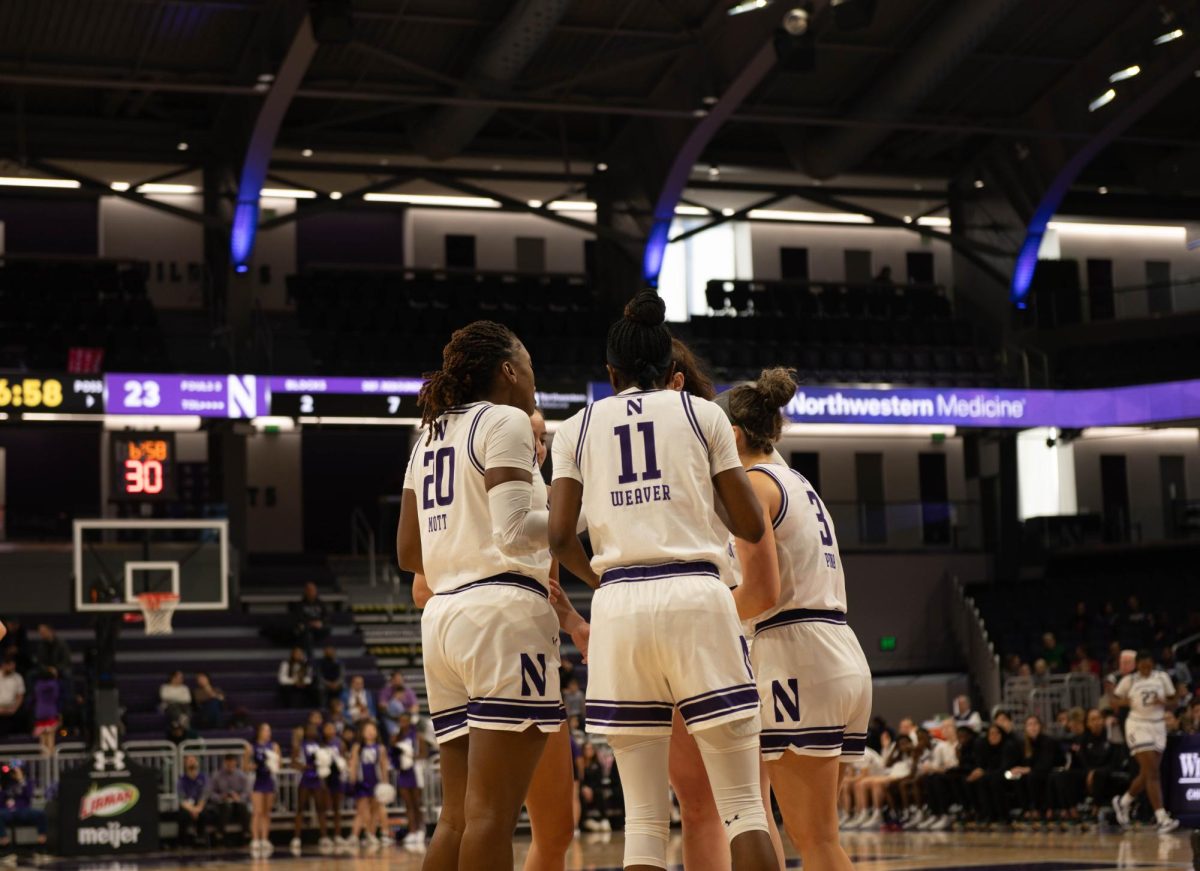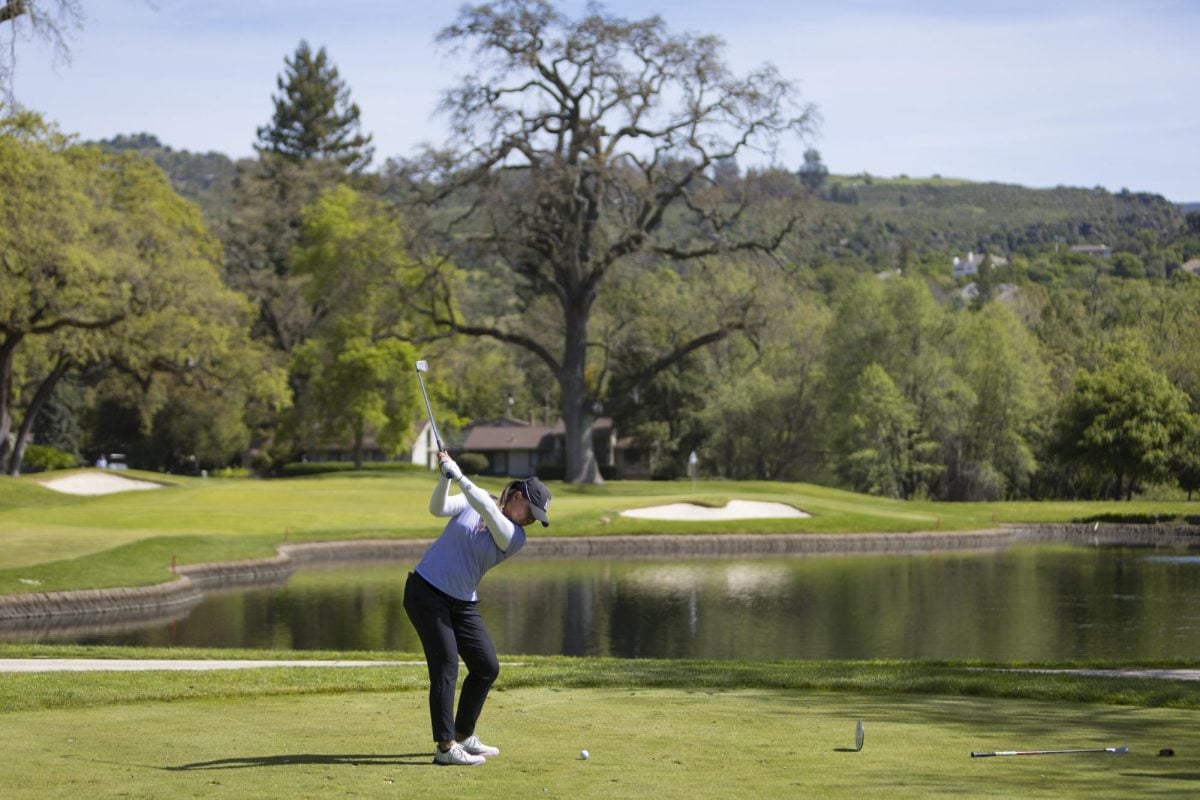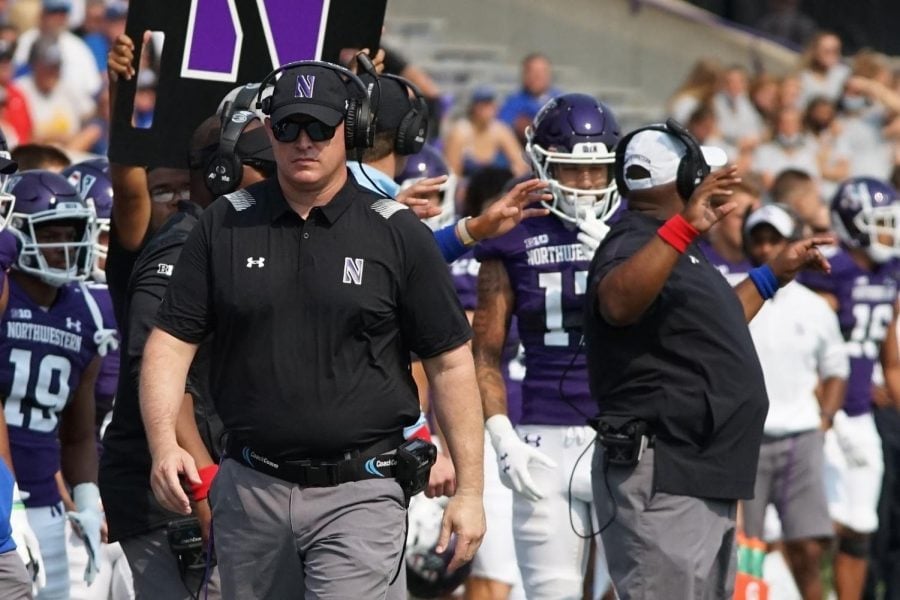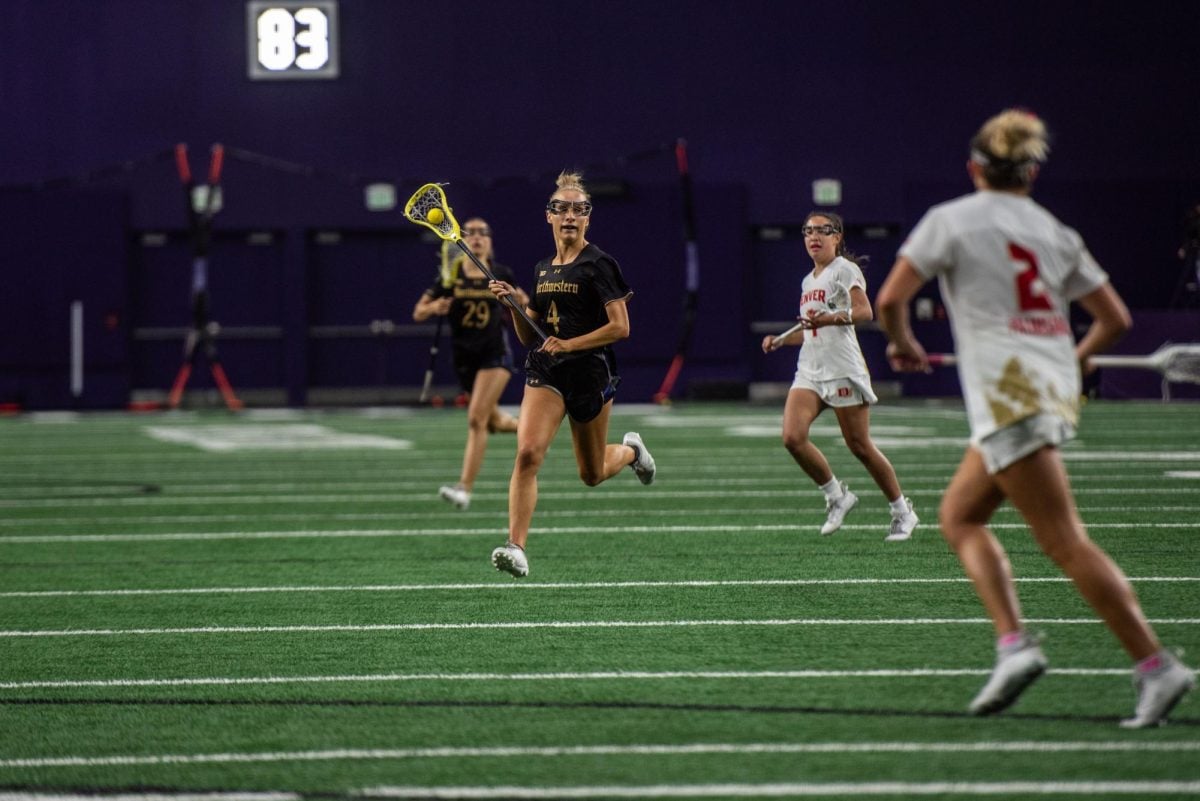For 84-year-old Marcy Rothman, the world of journalism is practically unrecognizable.As a “copy girl” and then-cub reporter for the New York Post, Rothman wrote scores for horse races on a giant chalkboard. Rothman has a hard time relating to media’s ever-changing landscape, as social media becomes more prominent.
While tweeting and blogging are becoming increasingly popular in news reporting, they are drastically changing the nature of sports journalism. Instead of waiting for the nightly news or the next day’s paper, fans can receive score updates as they happen. Helene Elliott, Medill ’79, a sports columnist for the Los Angeles Times, said she wonders about the sustainability of these burgeoning outlets.
“Who’s to say that tweeting and blogging won’t be outdated in a year or two?” she said. “If I knew, I’d be a multimillion dollar consultant. It’s constantly evolving.”
But Christine Brennan, Medill ’80, was quick to point out as readers and consumers demand news more and faster than ever, newspapers are shutting down in lieu of Internet news services. For Brennan, the most concerning part of new journalism is whether consumers can differentiate between trained, unbiased journalists and amateurs.
“How do we transition from newspapers to giving this information to people on their cell phones?” she said. “Hopefully seriously good journalism will prevail, as opposed to someone in their basement in their pajamas.”
While Brennan is curious how people will get their news, Vicki Michaelis, Medill ’91, is concerned with who will provide it. Michaelis said she is worried consumers will stop reading or watching unbiased sports journalism, and will turn directly to the stakeholders for their information.
For example, a fan could turn to the Major League Baseball Web site instead of a publication or news network. In turn, the audience will be getting their news from the provider of the entertainment or sponsor of the sport.
“I don’t think a lot of people can make that distinction and say, ‘Oh, well I may not be getting the whole story here, I may not be getting an objective view of the game. I may only be getting what Major League Baseball wants to put out,'” she said.
In a time where media outlets are scrambling to break even, Michaelis said she worriesfuture journalists may have to contemplate their integrity and debate working for a stakeholder?”
Media outlets also have tough questions to answer. Rosewater cited the “Balloon Boy” story from this month as an example of how the need for rapid response can lead to misinformation. Had the incident occurred 20 years ago, Rosewater explained, there wouldn’t have been an outlet for immediate coverage and online updates. In a newsroom setting, the time between the story being written and the paper going to print would have been enough for reporters to determine if the incident was a hoax.
“You would actually have had a minute to sit there and say, ‘Wait a minute, could that thing actually lift a young child?’ and think about it and say, ‘What’s the background of these parents?'” she said. “Our appetite for immediacy is going to have to shake out so that people still want good journalism.”[email protected]

